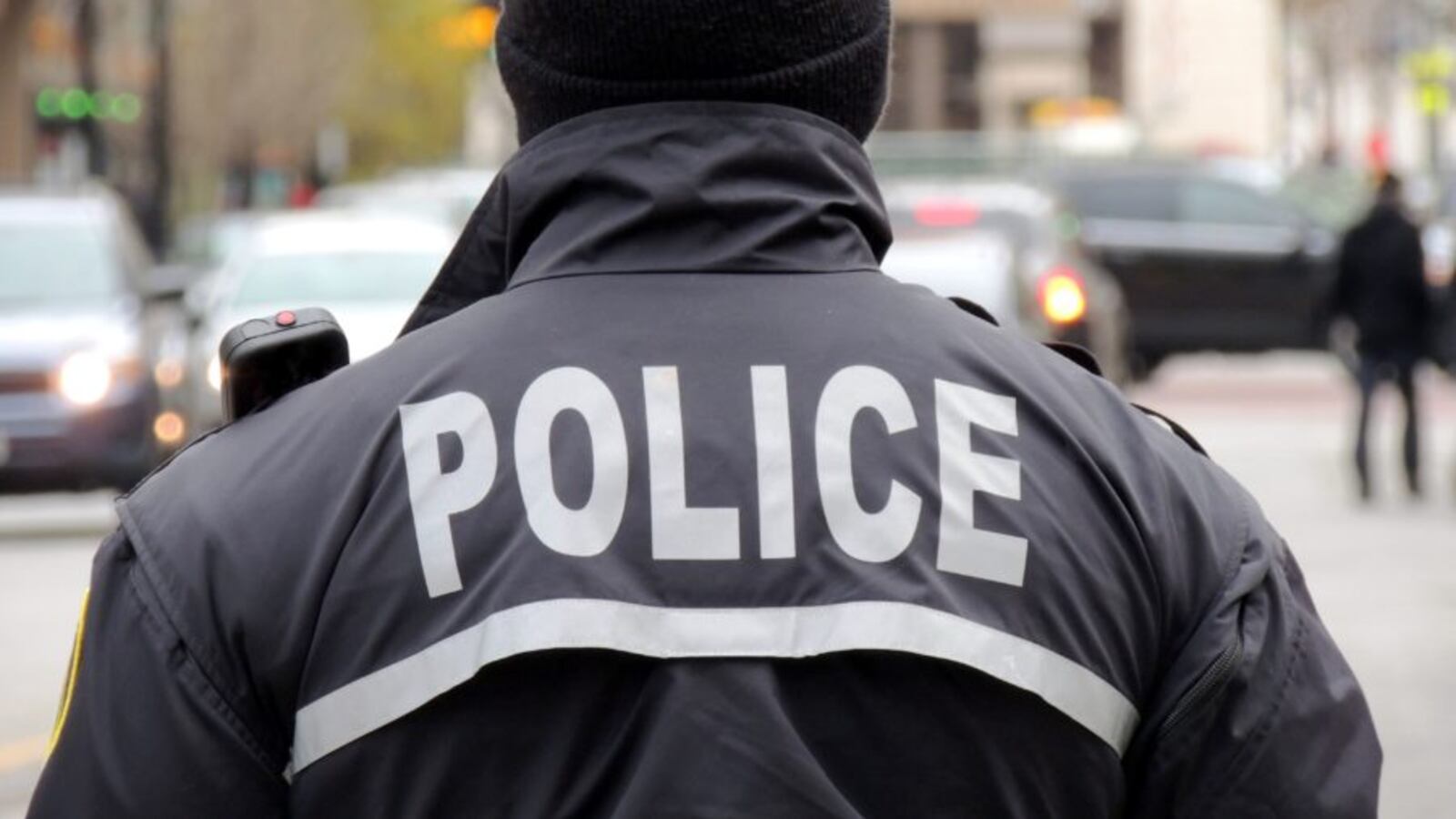Police assigned to Chicago schools will have access to some student data, but they will not be allowed to intervene in school discipline, according to a long-awaited agreement outlining school policing.
Details are publicly available for the first time in a new $33 million contract laying out the most sweeping changes to the school police program in over a decade.
The agreement, known as a memorandum of understanding, offers guidelines on how Chicago Public Schools and the Chicago Police Department will run the controversial school police program, which was criticized for having no clear guidelines on how officers were chosen or should act in schools.
It covers police officers’ access to student data, training guidelines, and the chain of command for oversight of school officers. Although Chicago has assigned police to certain campuses for years, the city and school district had no written agreement outlining their roles and supervision.
The agreement springs from a one-year reform process, spurred by federal oversight of the city’s police department that followed an alleged cover-up of the fatal shooting of Chicago teenager Laquan McDonald in 2014.
Chicago’s school police program underwent intense scrutiny by the federal government and Chicago schools’ inspector general for its failure to adequately vet or train officers working in schools, or to properly define their roles. School policing is covered under a broader federal decree ordering Chicago to reform its long-troubled police department.
The one-year contract, which began Sept. 1, provides for about 100 officers who are stationed in schools or patrol school grounds in cars. The school district and police department have the option to renew the contract twice, each time for a year.
Even as the city has moved forward on school police reforms, students have vocally opposed keeping Chicago Police Department officers in schools.
Last summer, students from Voices of Youth in Chicago Education, a group that successfully advocated for legislation to limit school suspensions, said having officers in schools made them feel less safe. Members called for diverting money for police in schools to be spent instead on more support staff.
The agreement offers the first glimpse into police reforms covering several issues.
School officers will have some access to student data.
According to the agreement, school administrators “shall allow school police to inspect and copy any public education records maintained by the school.” But according to the district, school officers won’t have direct access to the student information system, and school administrators would review any requests for information.
The agreement calls for schools to release confidential information about students only if legally permitted, in the case of emergency, or depending on how the release would affect the health or safety of a student.
Federal guidance on how school resource officers should access student data that is protected by a federal privacy law known as FERPA suggest schools decide on a case-by-case basis.
Questions remain about long-term record keeping around school police work.
Police will compile their school activity, including arrests, in a monthly report sent to Jadine Chou, the chief officer of safety and security for Chicago schools.
In a separate section about record keeping, the agreement says the police department will keep records on “time expended in performing services, costs incurred and actual services performed.” The agreement also says those records shall be maintained for two years after the services are completed but does not mention longer-term record keeping.
Officers will have an office and police-network-connected computer terminal in schools.
Schools will provide officers stationed in schools a dedicated office space and they will have access to police computer networks in those offices.
School officers will make “reasonable attempts” to reach a student’s parents before taking any actions related to that student on school grounds.
Police authorities are primarily in charge of oversight of school officers’ performance.
The superintendent of police and a police department central coordinator for school officers will supervise daily police work in schools. An officer from specific police districts also will oversee officers.
Chou, of the school district, will also monitor the performance of school police.
Last summer, school officials promised that principals would be able to help select police officers for their campuses. A police spokesperson said that provision is in place. But the document does not make clear principal involvement in officer assignments.
Officers will stop intervening in school discipline.
The primary role of a school police officer, according to the agreement, is to “ensure safety and deter crimes” at certain Chicago schools. Those officers will wear uniforms and carry “standard equipment,” it says.
The agreement bans police from involvement in school disciplinary actions, an effort to address concerns about pushing students into the criminal justice system. Officers are instructed to tell a police supervisor if school administrators improperly ask them to intervene in any school discipline.
Chicago Public Schools’ Office of Student Protections and Title IX will have the authority, in some cases, to decide whether a criminal case moves forward in cases of sexual abuse or harassment.
The agreement lays out a plan for choosing and training school officers.
Chicago police and school district officials together developed screening criteria for school officers that include: at least three years of policing experience, knowledge of juvenile laws and the student code of conduct, previous experience working with youth in a learning environment, the ability to problem-solve in a team environment, quality report writing skills, and enthusiasm for the position.
Police will consider an officer’s prior disciplinary history, the report says. (The district came under fire in the past for hiring officers with troubling records that included violence against young people.)
Officers will receive annual training by Chicago Public Schools that includes information about de-escalating conflicts, building relationships with young people, disability and special education, youth crisis intervention, and implicit racial bias.
CLARIFICATION: Officers stationed in Chicago Public Schools will not have access to student data systems, according to the school district.

